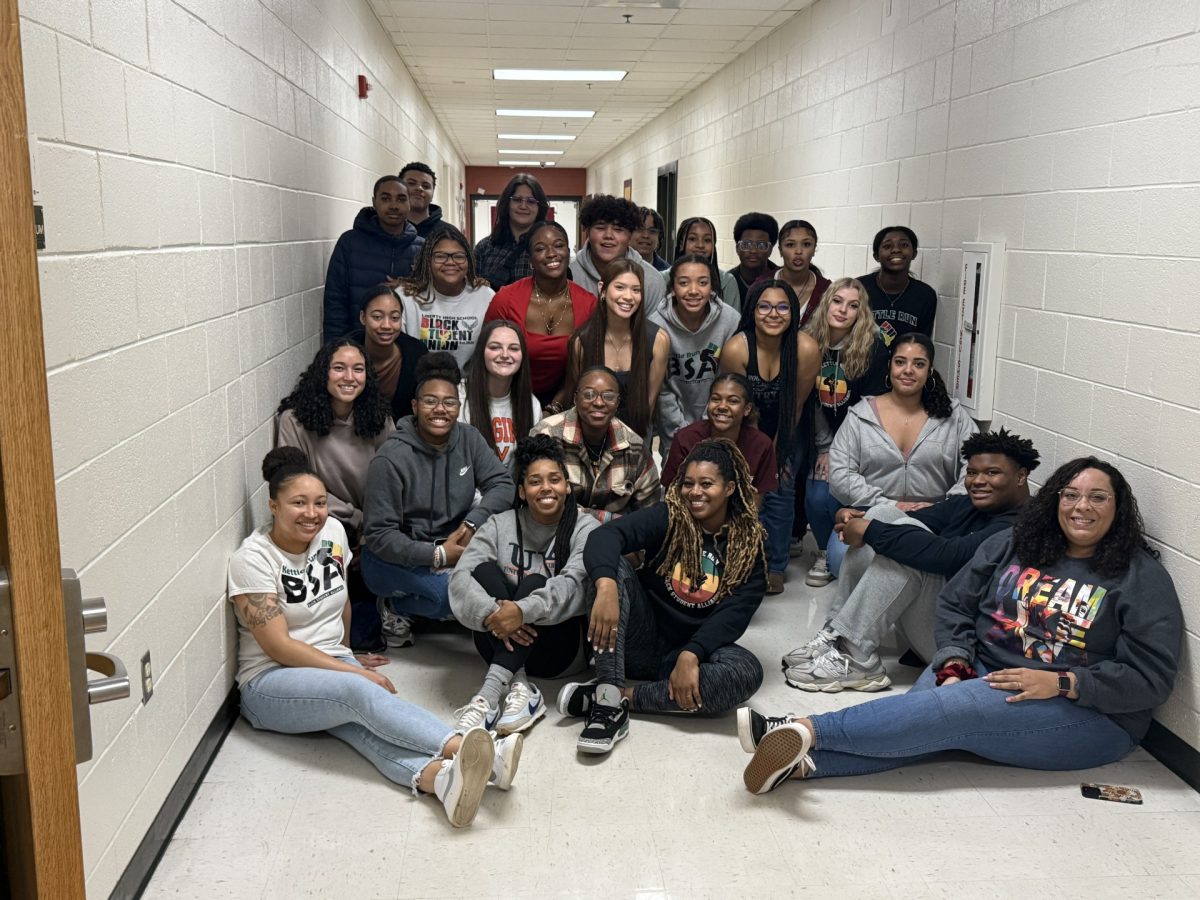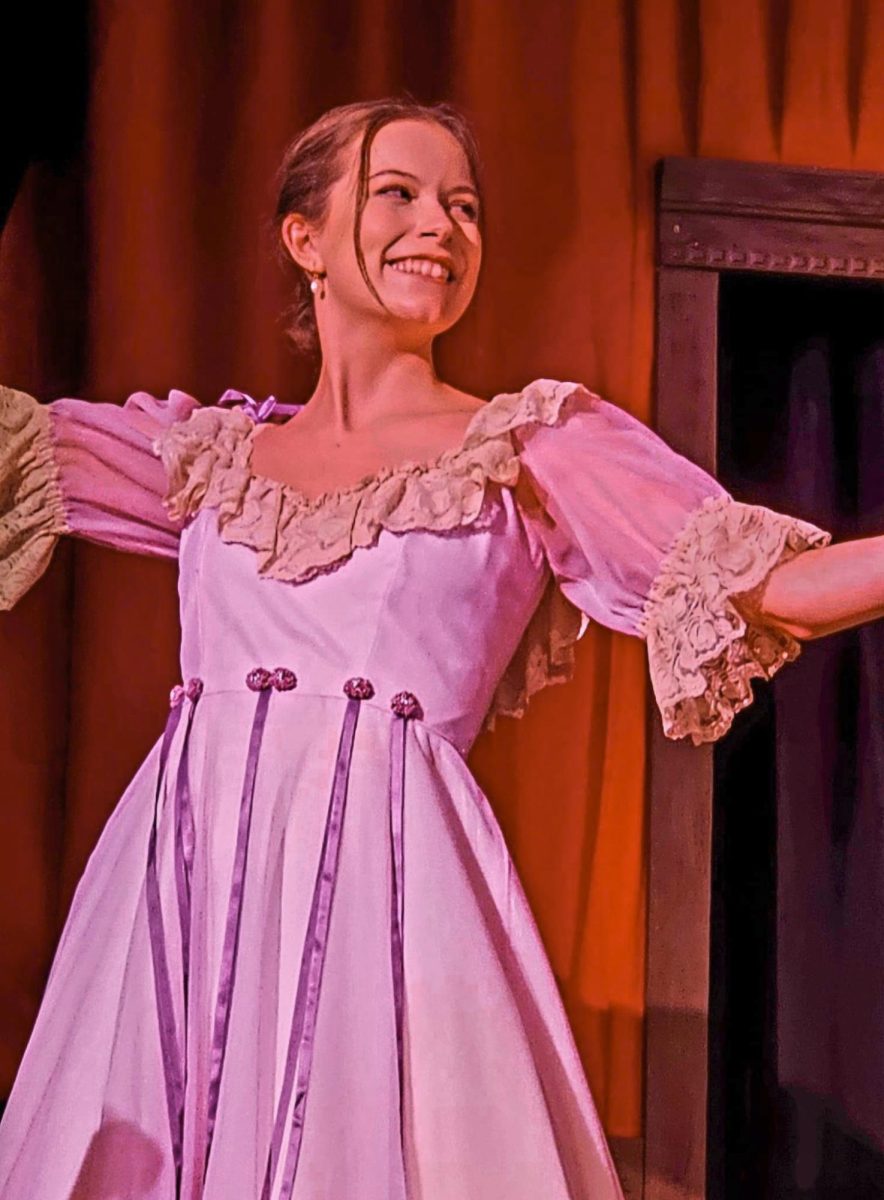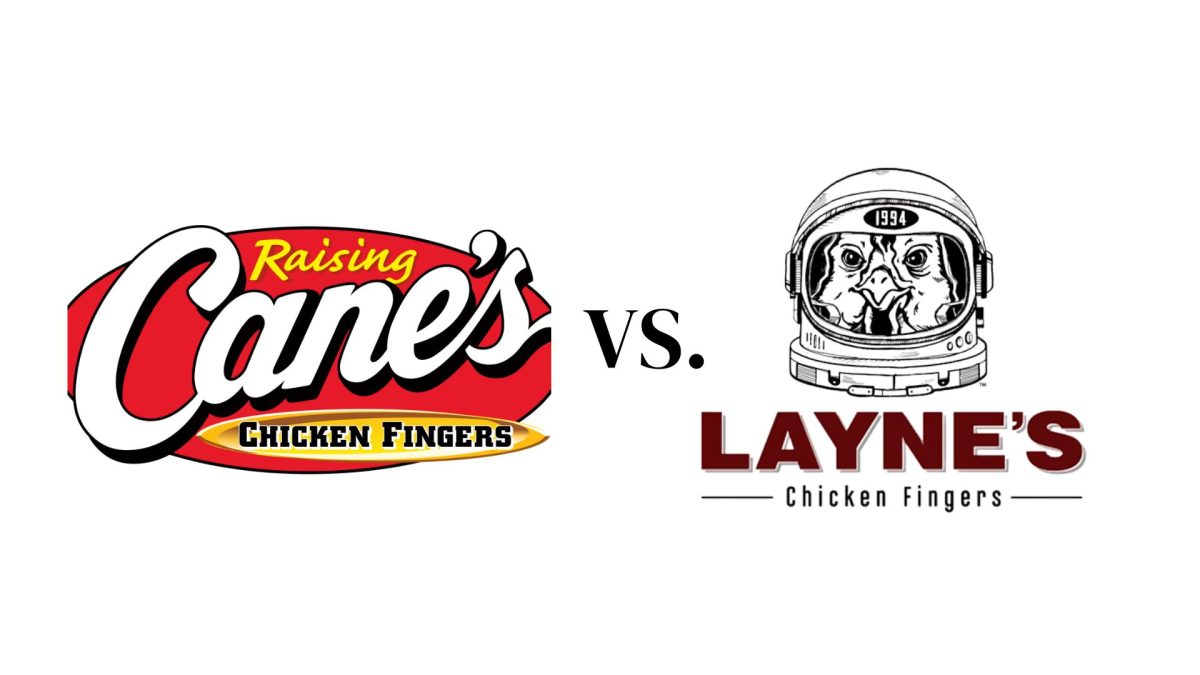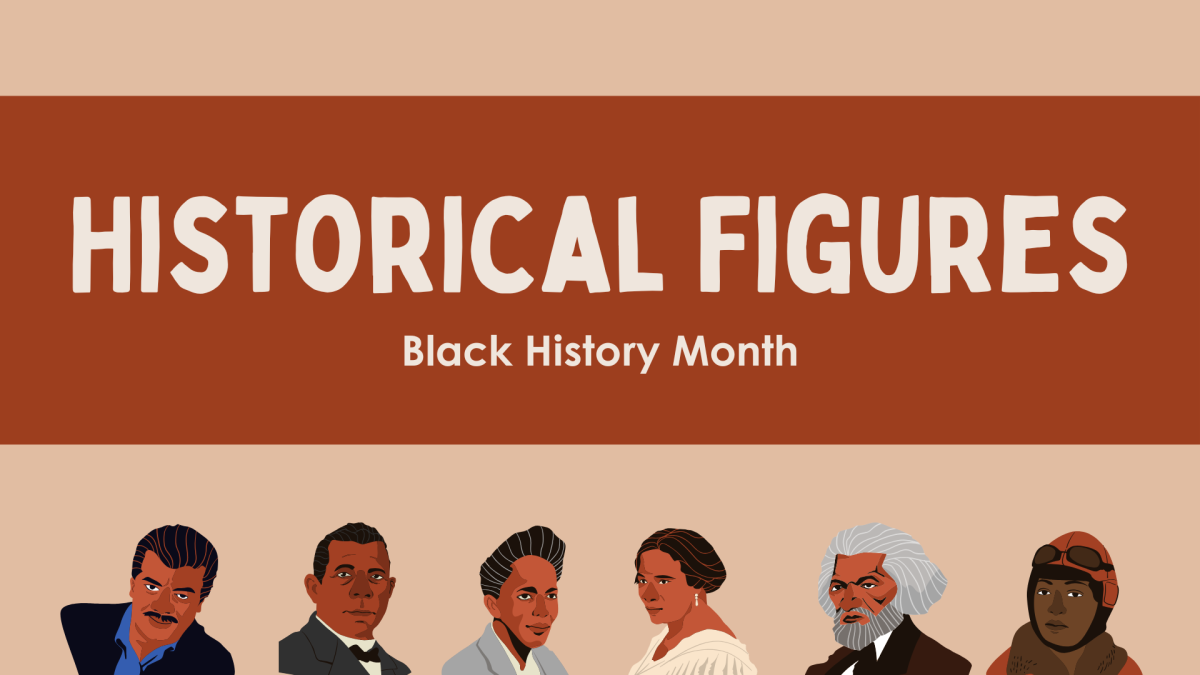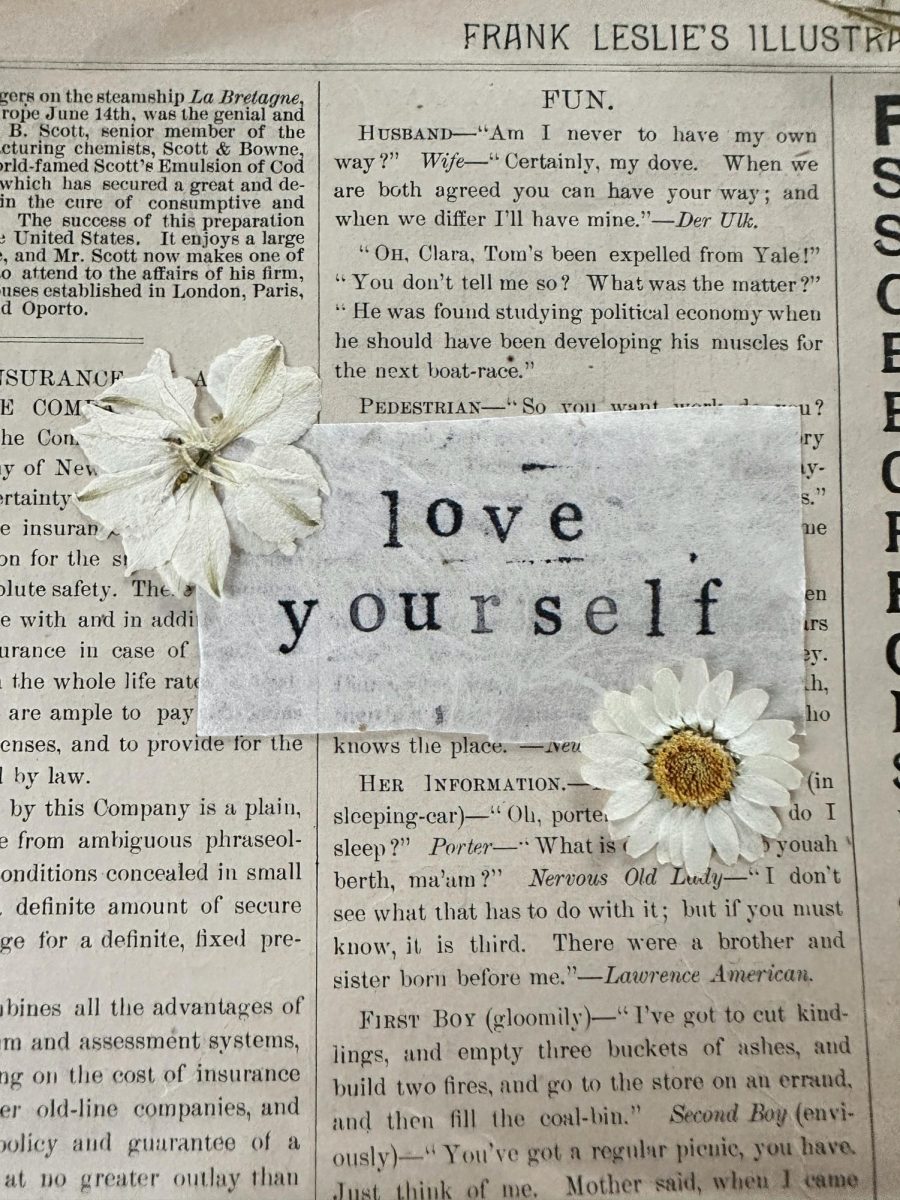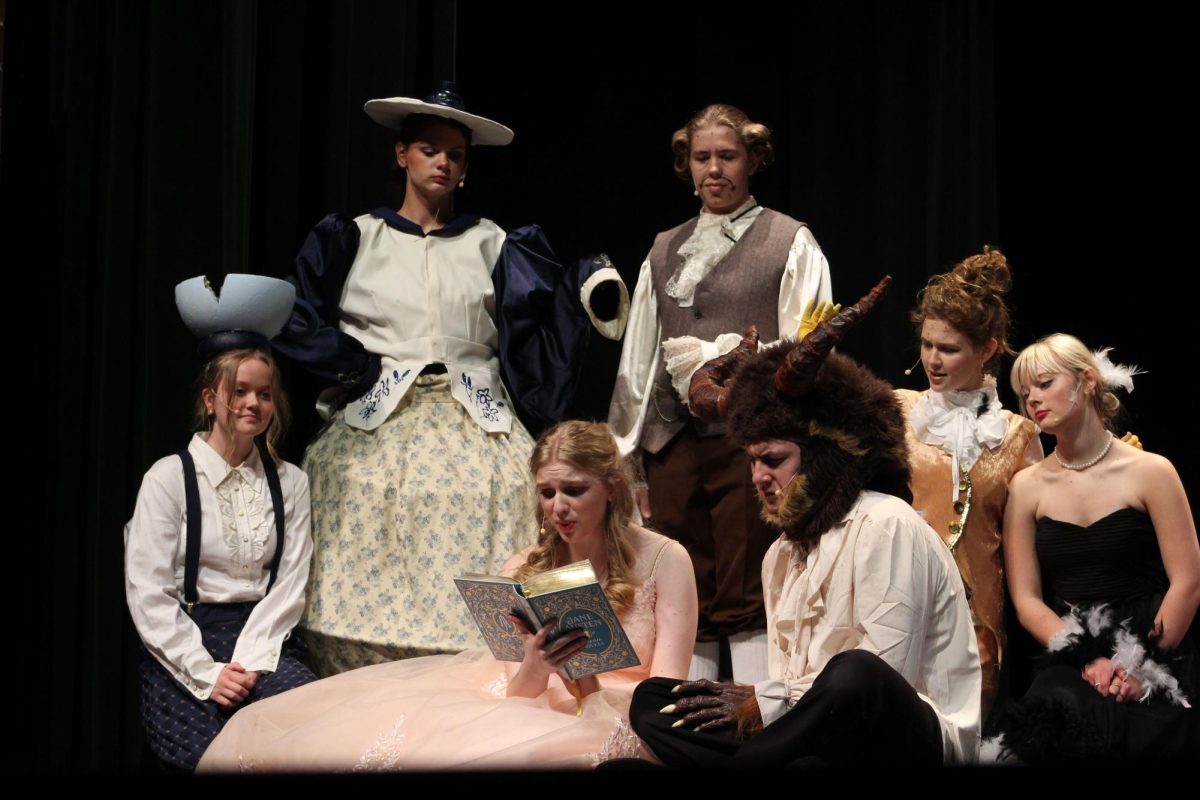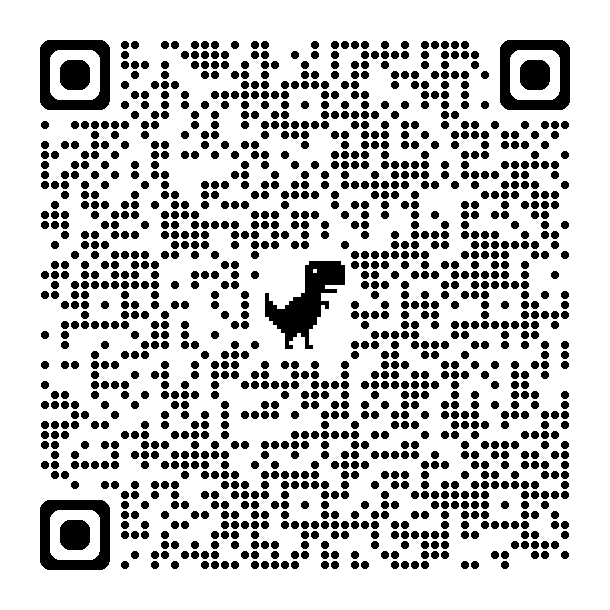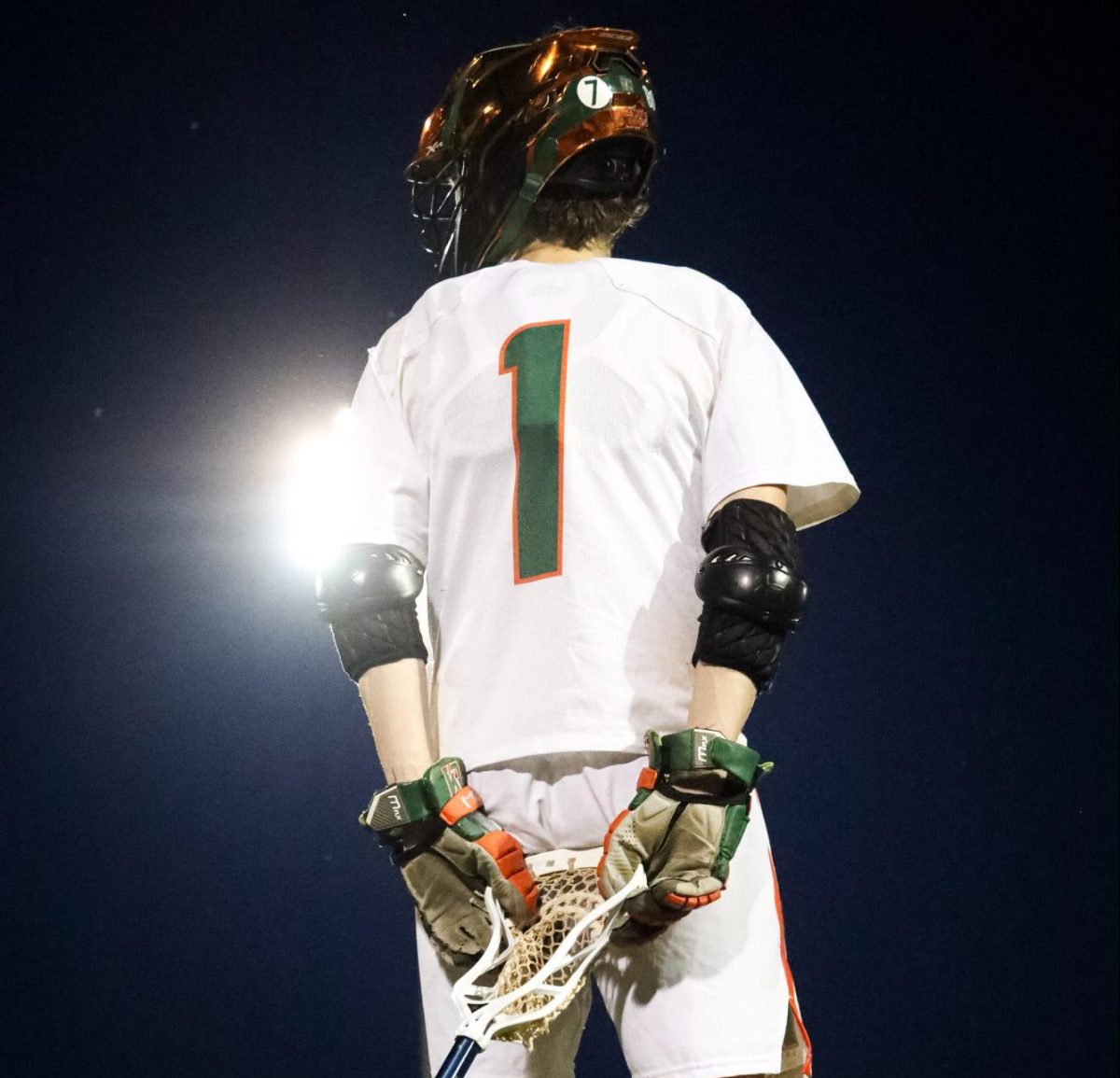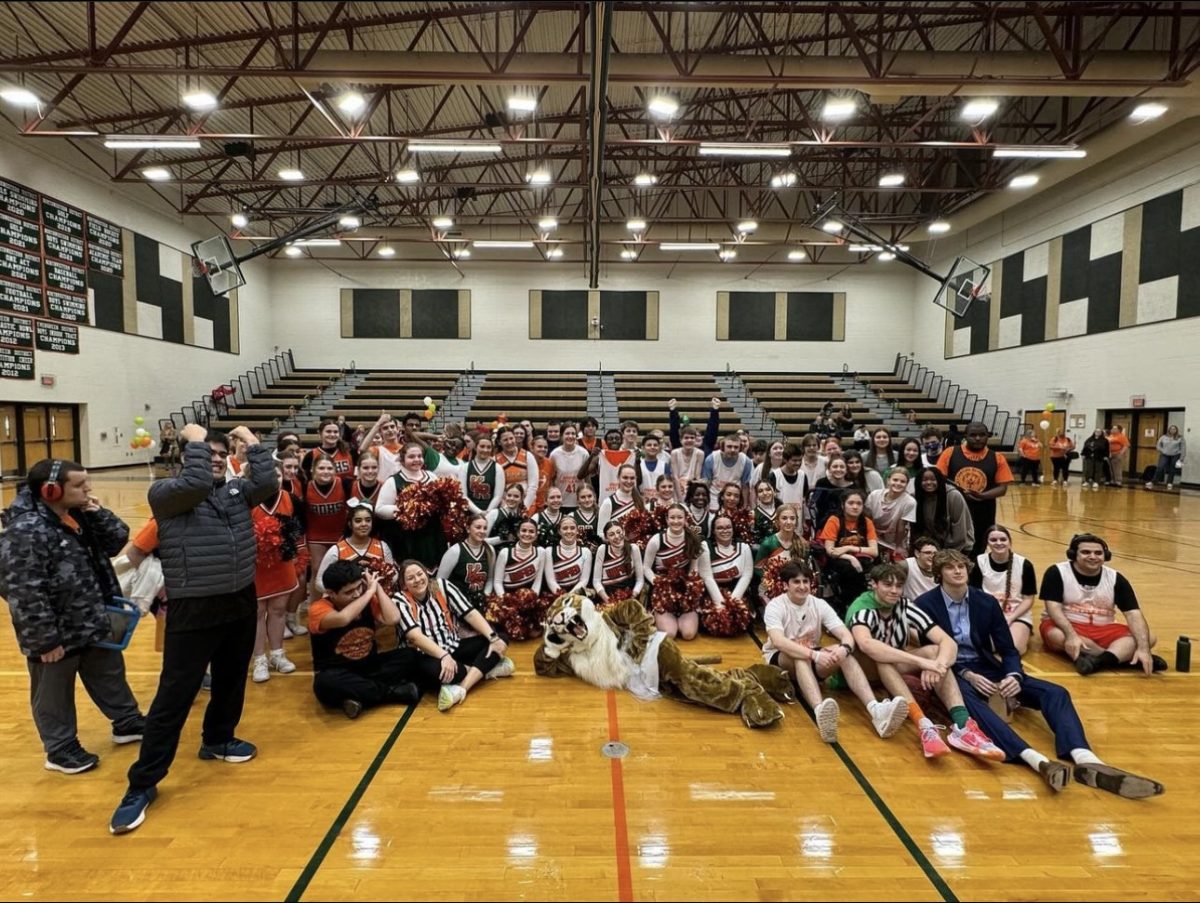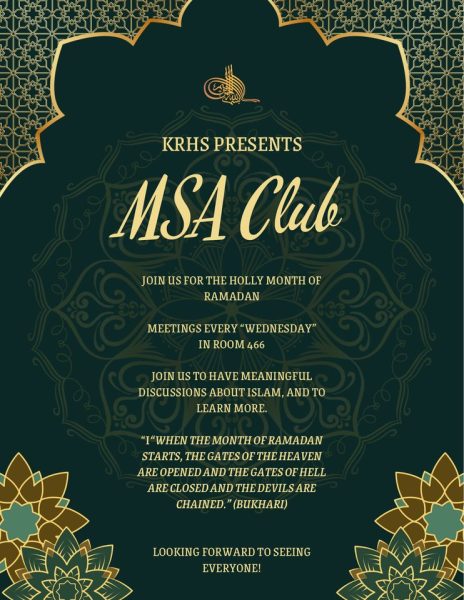Civil Rights Roundtable
Opening discussion about racial discrimination
A Kettle Run teacher brought history to life for the junior class. On Tuesday, Feb. 27, juniors gathered in the auditorium for the “Civil Rights Roundtable” where they listened to panelists share their experiences regarding the fight for civil rights. U.S. History teacher David Kuzma organized the event.
Kuzma was inspired to create the panel after listening to a friend share his experiences growing up in Fauquier County as an African American male.
“We wanted to provide a general understanding of the Civil Rights Movement at the national level,” Kuzma said. “More importantly, we wanted students to hear from those who had dealt with discrimination in a positive way. We believe that some of our kids feel discriminated against and others are discriminating against their peers. We hoped to expose discrimination and force people to have a conversation about it.”
The panelists were Dr. David Jeck, superintendent; Major Warner, associate superintendent of instruction; Dr. Sandra Mitchell, retired associate superintendent of instruction; John Harrison, retired Liberty High School principal; Ben McCartney, retired FHS government teacher; and John Thompson, retired physical education teacher. Bob Jacobs, retired FHS teacher, was the moderator. Jacobs kicked off the event by asking about events in the panelists’ lives that may have opened their eyes to racial divide in the country. Mitchell spoke about her experiences as one of the first six African American females to attend a desegregated school.
“I remember my father led me through a sea of people,” Mitchell said. “There was another fourth grader who was white and they separated us. I remember feeling very very alone.”
Warner shared his experiences with racism in restaurants.
“This was in the spring of 1984 when restaurants didn’t serve people of color,” Warner said. “We went in single file and there was a ‘whites only’ sign. The owner came out and said ‘I’m not going to serve you.’ It was the first time in my life that I had ever been denied anything.”
Harrison shared a story about the time he tried to stay in a restaurant when he was told he wouldn’t be served because of his skin color.
“They said, ‘we don’t serve coloreds here,’ and I said, ‘I don’t believe you’re gonna make me get up,’” Harrison said. “Eventually, we decided to get up and go.”
The group traveled to a different restaurant just down the street from the one they’d just been kicked out of, only to find that the door had been locked. Mitchell encouraged students to look past the “microaggressions that can affect us deeply.”
“Words matter,” Mitchell said. “We have got to fight these mental models we have of people. Yes, we are different. The key is that it shouldn’t make a difference.”
Juniors heard the panelists’ message loud and clear.
“It was powerful to listen, firsthand, to the experiences that the panelists went through,” junior Madison Slevin said. “It was especially impactful because these events only happened, roughly, 50 years ago.”
What stood out most to Slevin was McCartney’s story of how he “was singled out in school” and got an ‘F’ in a course at the University of Richmond because of his religion.
Junior Claire LaFleur thought the forum touched on some riveting points.
“I took away the importance of respecting what makes everyone different and embracing what makes us the same,” LaFleur said. “I think it’s important to maintain peace while diversity blooms around us.”
LaFleur enjoyed hearing the panelists talk about Fauquier County in “such a foreign way,” when racism was far more prevalent than it is today. The panelists suggested students should strive to create change and steer their peers in the right direction.
“Civility matters,” Warner said. “How we treat each other is everything. You’re going to be the generation that changes everything.”
“I hope students came away with an understanding that racial discrimination and other kinds of discrimination based on fear and ignorance existed in this county in the not too distant past,” Jacobs said. “I hope also they came away struck by how racial, gender, and religious differences should never blind us to our common humanity.”
Jacobs added that Kuzma did a great job bringing an issue, out of a dry textbook, come to life.
“This forum allowed us to see and hear history in the words of the people who helped make history,” Jacobs said. “Discrimination is not an abstraction but a flesh and blood reality that affects us as individuals and as a community.”
Kuzma was thrilled with the outcome of the forum.
“With the reality of the shared stories, the event became emotional and many people exclaimed that they were forced to confront issues that they had thought about,” Kuzma said. “We did have a few negative responses concerning the format, but if we do this again, we can surely address those.”
McCartney wanted to leave students with one piece of advice.
“Think before you speak,” McCartney said. “It’s your generation that has to make it work.”



